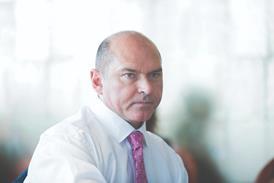- Hull and East Yorkshire Hospitals urgent screening to treatment performance dropped to almost 50 per cent in August
- Chief operating officer says delays down to workforce challenges and high demand
- Trust also blames “old kit”, adding it is reliant on expensive MRI vans
A large acute trust’s cancer performance has plummeted over the summer, with only half of its patients treated within 62 days of an urgent screening referral.
Hull and East Yorkshire Hospitals Trust cancer performance dropped to 51.7 per cent in August compared to the national standard of 90 per cent.
The trust treated 57 per cent of patients against the standard in quarter two overall, compared to 76 per cent during the same time last year.
According to a report to the trust board, an adjusted 70 per cent of patients were treated within 62 days in August following an urgent GP referral against the 85 per cent target, which it said was “[the worst] it had been in six months”.
Teresa Cope, chief operating officer at Hull and East Yorkshire Hospitals, told HSJ the trust’s cancer performance slipped mainly because of delays in obtaining histology results “due to high demand and workforce challenges within our cellular pathology service”.
“Additionally, some patients requested a delay,” Ms Cope added.
“These delays meant we did not meet the standard and were unable to deliver the care we would expect and our staff have been working hard to resolve these issues,” she said.
“While we continue to work towards the target of 90 per cent, screening figures for October show an improvement to 77 per cent and we expect to be meeting the standard from January.”
According to Hull and East Yorkshire’s board performance report, there are also “issues regarding staff recruitment and old kit”.
It was suggested ageing scanners were costing the trust money, as MRI vans needed to be hired at a high cost.
The Health Foundation published a report last week, which recommend a network of diagnostic centres for the rapid diagnosis of suspected cancer should be established across England.
It also welcomed the new government policy to increase the proportion of patients diagnosed at an early stage from 50 per cent to 75 per cent by 2028.
Source
HEY board report (performance)
Source date
November 2018



























1 Readers' comment